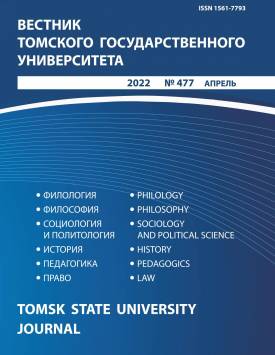Assessment of formation of postgraduate students' ability to write article abstracts in a foreign language
. The article presents an approach to assessing abstracts of scientific articles written by postgraduate students in a foreign language. It also considers classroom techniques that use detailed assessment criteria as performance guidelines at early stages of implementing academic writing tasks. The main idea underlying the author's attempts was to make assessment criteria highly applicable in order to advance students' self-control, self-organization and motivation. Assessment criteria were intended to provide useful guidance for learners, emphasizing the clearest and catchy ways to express thoughts and communicate information. As a result, students would learn how they should organise the text, what vocabulary and grammar structures they should regard as appropriate, and what stylistic faults they should try to avoid. Two sources of data were used in the study. The first one was publications in the field of scientific text stylistics, and the second one was the results of text sample analysis. The former revealed scientific text structure patterns and stylistic features including characteristics of abstracts. The author used them to formulate criteria for assessing postgraduate students' works. One important conclusion was that the structure of an abstract is determined by the subgenre of the article. For first- and second-year postgraduates, it is essential to distinguish between the concepts of “review article”, “scientific methodological article” and “scientific theoretical article”. Each of these subgenres aims to perform particular functions, which are spotlighted in abstracts. Another factor that predetermines effectiveness of an abstract is how promptly and accurately the reader can comprehend what the article is about and what new it offers. The next task of the study was to produce a generalized description of the most frequent mistakes that are found in abstracts in the field of earth science (meteorology, ecology, oceanology, and hydrology). This description included text logic flaws, incorrect arrangement of elements within the sentence, vague and incoherent expressions, and inappropriate choice of grammatical structures. Semantic accuracy, register, and correctness of collocations were also evaluated. The results of sample texts analysis were compared with some other researchers' conclusions that summarise communicative errors and stylistic faults in scientific texts written in English by Russian-speaking authors. The obtained data have given rise to descriptors outlining the desired result of postgraduates' writing. Teaching postgraduates to write abstracts during the experiment was organized as follows. The students considered the descriptors presented in this article. Then they were offered several texts to edit. After that, they wrote their own abstracts, which were afterwards discussed in the classroom. The abstracts presented by the students at the end of the academic year generally met all the necessary requirements.
Keywords
foreign language for specific and academic purposes, abstract of scientific article, academic performance assessment criteria, postgraduate course, writing skills development, academic writing styleAuthors
| Name | Organization | |
| Fedorova Nataliia Yu. | Russian State Hydrometeorological University | natajfedorova@rambler.ru |
References

Assessment of formation of postgraduate students' ability to write article abstracts in a foreign language | Vestnik Tomskogo gosudarstvennogo universiteta – Tomsk State University Journal. 2022. № 477. DOI: 10.17223/15617793/477/22
